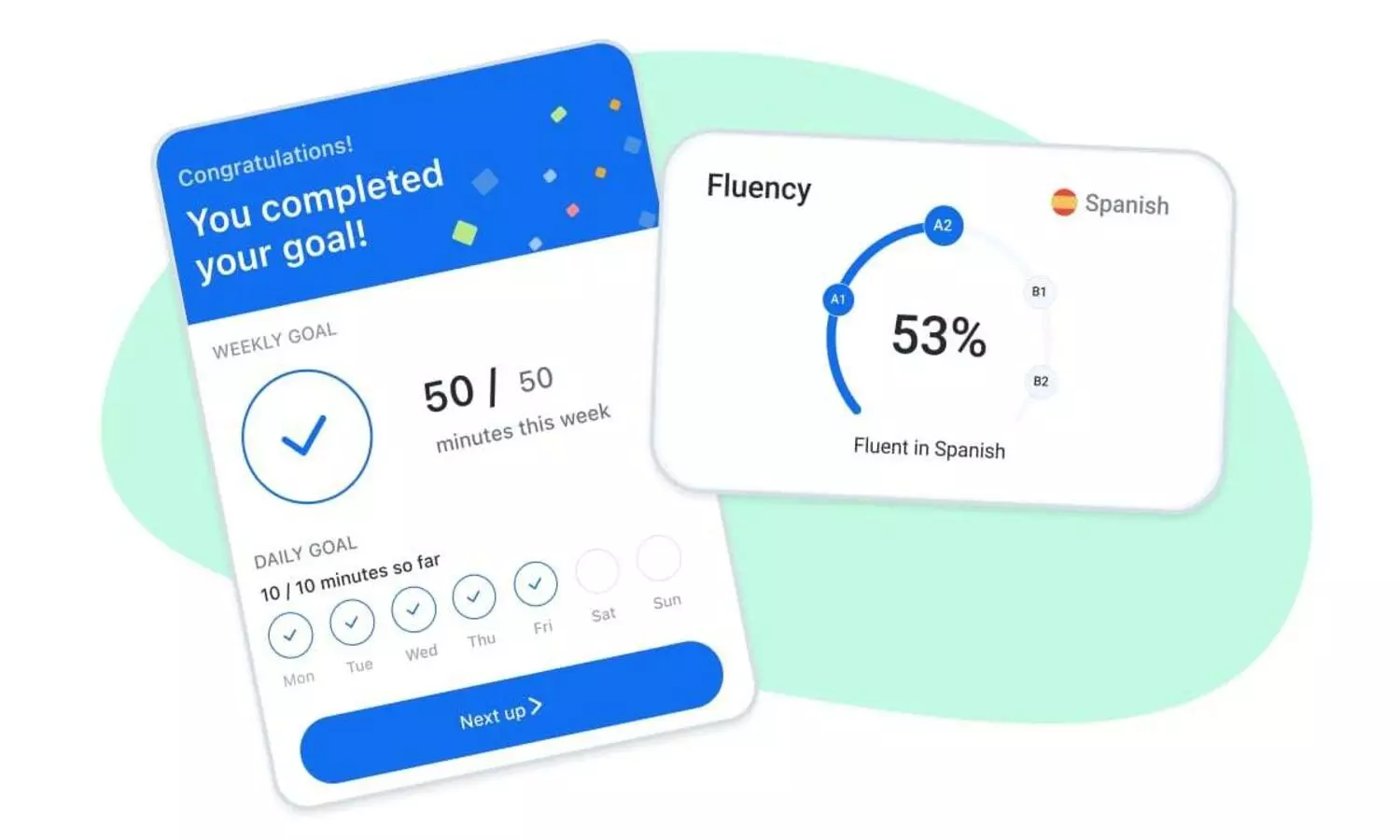Tired of Duolingo Limits? These 5 Apps Will Boost Your Language Skills
Duolingo’s free limits frustrate learners. Try these 5 apps for structured lessons, faster vocab, and real-world speaking practice.
image for illustrative purpose

The step taken by Duolingo to lower energy limits for free users has led to the search for alternatives by a lot of people who are learning a new language. One of the good things is that there are already some apps which have been there for quite some time, and they are now offering more extensive speaking exercises, deeper grammar instruction, and realistic listening practice as well, so it is quite a shift in their service compared to just simple gamified streaks. Tools like these which are backed by standards such as the CEFR and memory-based spaced repetition are coming up as reliable contenders for language learning.
Busuu: CEFR-Aligned Lessons and Peer Feedback
Busuu’s courses are based on the Common European Framework of Reference (CEFR), thus guaranteeing that learning can be quantitatively tracked from the student’s beginning level to the intermediate one. The lessons are made up of concise dialogues, targeted drills, and systematic review cycles, thus, evading the use of punitive daily quotas.
Another important aspect is its community feedback: native speakers can correct users’ writing and recordings providing a human touch that is often absent in language apps. Busuu has about 120 million users worldwide. Basic users get access to essential lessons while the premium members are provided with the opportunity to select their course order and the subject of their interest.
Babbel: Grammar-Centric Learning
Babbel specializes in providing grammar instruction that is well-structured and easy to understand for beginners and for those who want to have a solid base. In lessons, the emphasis is placed on sentence structure, word order, and practical applications that can be through writing or speaking exercises. The use of speech recognition technology provides the learner with instant feedback on his/her pronunciation and the listening comprehension skills are supported through short podcasts.
The platform is primarily focused on European languages such as Spanish, French, German, and Italian. Even though the platform does not support many non-European languages, Babbel with its system of grammar, cumulative reviews, and topic-based drills is a very good alternative for the traditional teaching method. The course structure meets the standards of ACTFL, which promotes the development of all skills in a multilingual way.
Memrise: Native Video Clips and Everyday Speech
Memrise is all about a lighter immersion experience, or you can say, it is focusing on real-world listening. Through the usage of native-speaker videos and everyday expressions, learners are made to interpret conversational language as it comes in the daily life rather than strict correct sentences. Its spaced-repetition engine reinforces memory without penalizing mistakes, and with the help of periodic review sessions, it takes care of the forgetting curve.
Free users have mainly access to vocabulary and phrases, while premium subscriptions make grammar-focused lessons available. Memrise’s tens of millions of users are given the opportunity of being exposed to different accents and casual speech, making it a good fit for those learners whose main concern is listening and comprehension.
Drops: Rapid Vocabulary Building Through Visuals
Drops uses a five-minute, icon-driven approach to hasten the acquisition of vocabulary. Its gamified microlearning format aids learners in quickly covering practical topics like travel, food, and hobbies. While the free version at least partially supports daily habits, it is still content-limited.
When using Drops for languages with unique scripts, it is advisable to pair it with a script-focused tool for better retention. Since its acquisition by Kahoot, Drops has remained committed to retention-focused gamified learning instead of pressuring the users through streaks.
LingoDeer: Asian Languages and Character Systems
LingoDeer is aimed predominantly at students of Japanese, Korean, and Mandarin. It provides grammar that is easy to comprehend, character stroke practice, as well as phonetics and particles training. The beginners get the necessary skills in practice for understanding menus, conversations, or recognizing characters in real life.
First lessons and travel phrasebooks are provided for free enabling the users to experience the method before subscribing. The dual-character support and sentence-building activities of LingoDeer give a degree of accuracy to learners that is often not available in generalist apps.
Choosing the Right Alternative
The learners are the ones that decide: Busuu for well-structured CEFR lessons with the help of community feedback, Babbel for grammar-centered study, Memrise for native clips and conversational listening, Drops for speedy vocabulary development, and LingoDeer for Asian scripts and character mastery.
The constant usage of spaced repetition, active recall, and multimodal practice, that is listening, speaking, reading, and writing, remains crucial. These five apps enable learners to go beyond the energy limits and the pressure of streaks, thus establishing routines that develop language proficiency for real-life situations.

